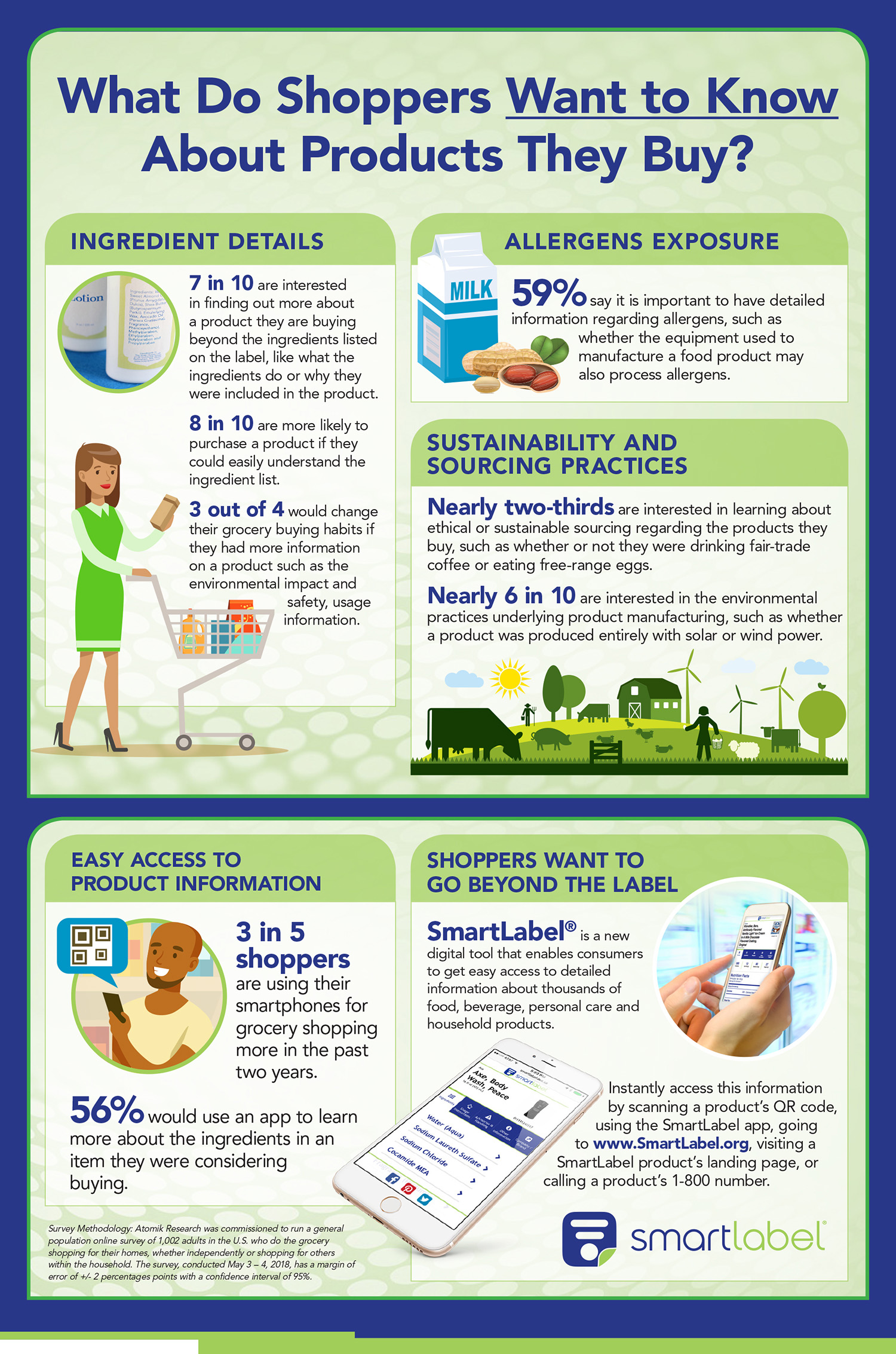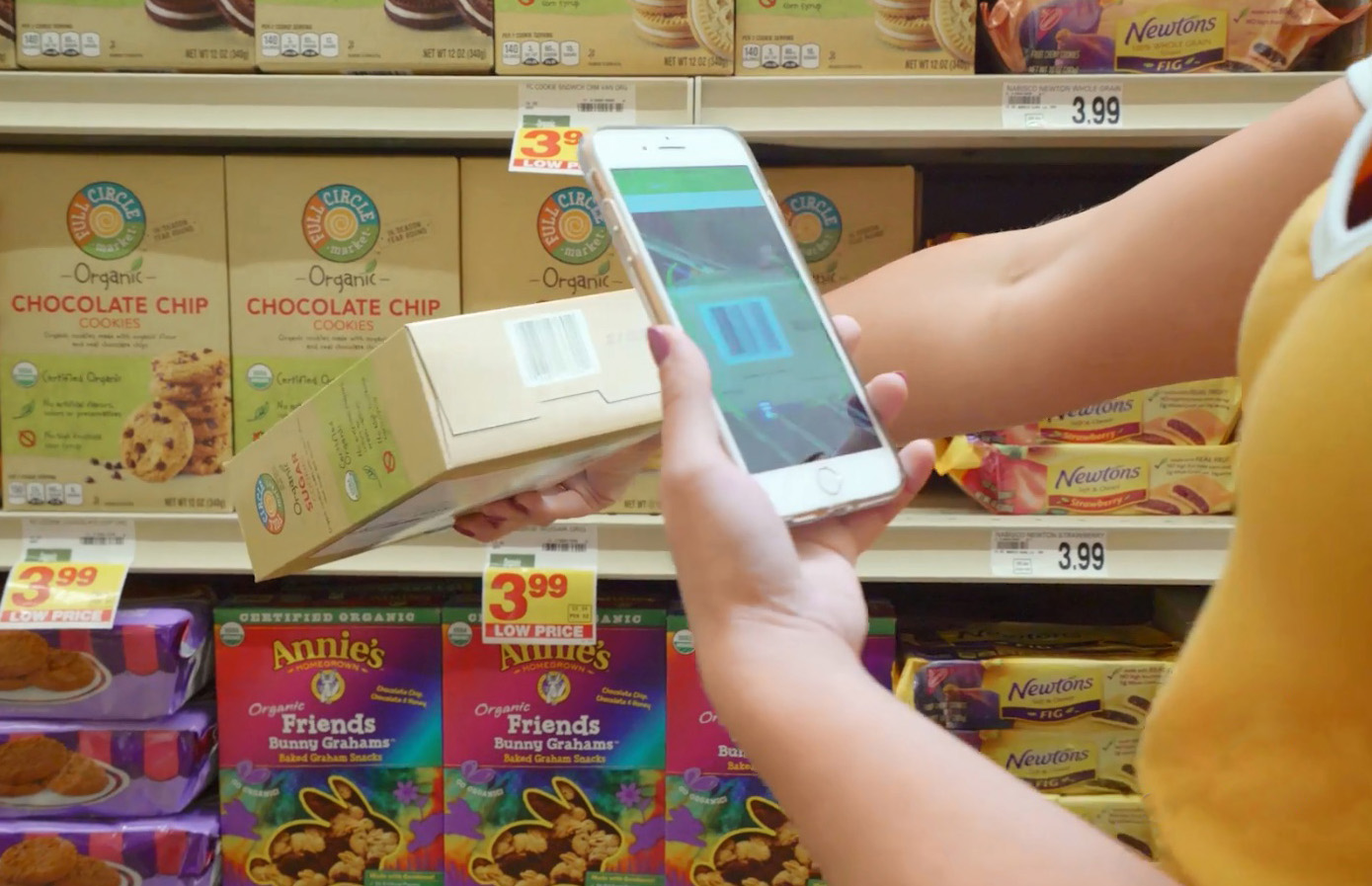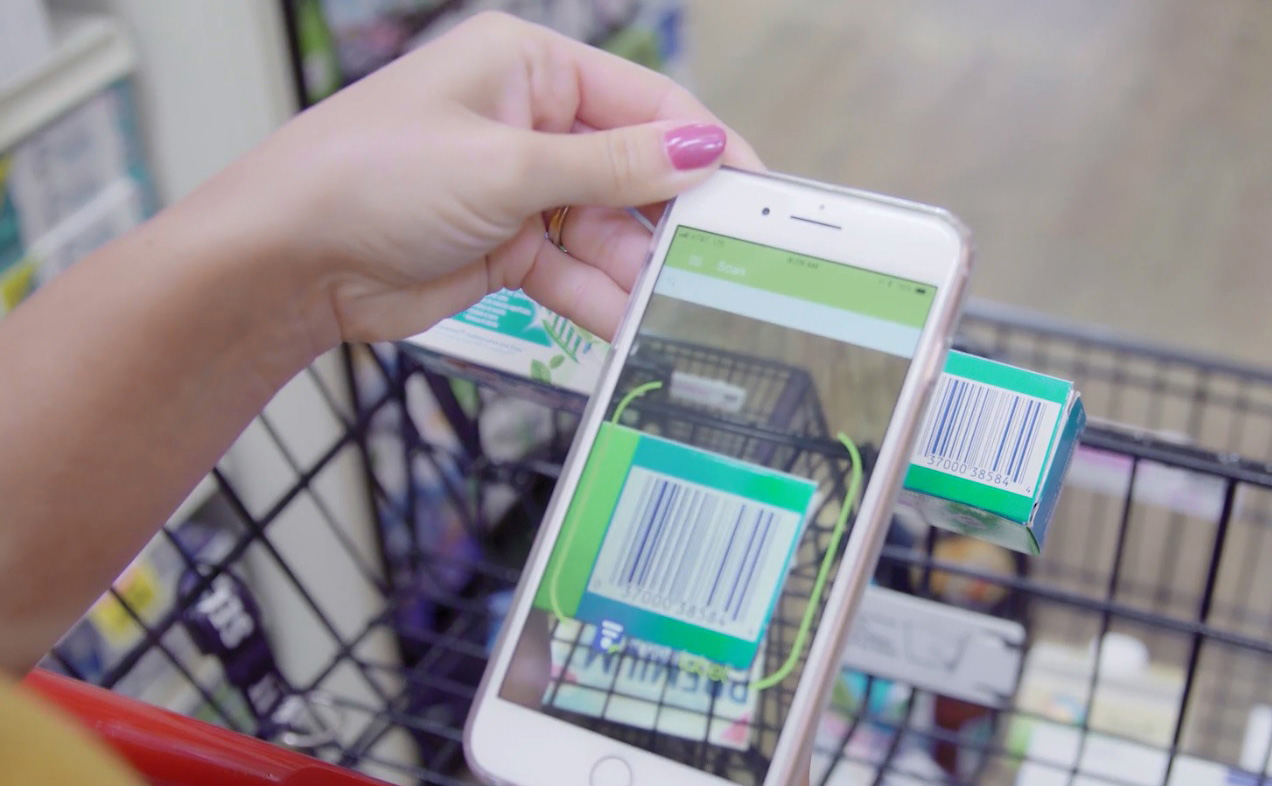New Survey Finds Shoppers Want to Know More Details about their Grocery Products than What is On Traditional Package Labels
SmartLabel® Digital Disclosure Now Widely Available on Nearly 28,000 Grocery Products Throughout Stores
WASHINGTON, June 12, 2018 /PRNewswire/ -- More than 7 in 10 shoppers want to find out more about the grocery products they buy than they are currently able to get with traditional on-package labels, according to a new national survey. These shoppers want to go beyond the ingredients listed on the label to get information on what the ingredients do and why they are in the product.
Experience the interactive Multichannel News Release here: https://www.multivu.com/players/English/8339551-smartlabel-consumer-launch/
These survey findings underscore the importance of a new digital tool – known as SmartLabel® – that enables consumers to get easy access to this extra, detailed information about the products they use and consume. Nearly 28,000 food, beverage, personal care, household and other products throughout food retail stores are now using SmartLabel.
SmartLabel gives consumers access to more product information than could ever fit on a traditional package label. Consumers can find out not only what ingredients are included in products, but also why those ingredients are in the product, what they do, and even where they come from. SmartLabel can include detailed descriptions on allergens, usage instructions, information about how the product was produced, how animals were treated during the development process, or the product's environmental impact.
Shoppers can instantaneously access all this information by simply scanning a product's QR code using the SmartLabel app or one's camera feature on a smartphone, going to www.smartlabel.org, visiting the SmartLabel product's landing page online, or calling a product's 1-800 number to be given SmartLabel information over the phone.
Industry Launches SmartLabel Consumer Education Campaign
With SmartLabel so widely available, manufacturers and retailers are launching an education campaign over the next several months to help consumers understand that detailed product information is right at their fingertips – and understand how to find it.
"SmartLabel participation has increased significantly from 4,000 products in early 2017 to nearly 28,000 food, beverage, personal care and household products today," said Jim Flannery, senior executive vice president at the Grocery Manufacturers Association. "More products are using SmartLabel every week, and that's why manufacturers and retailers are kicking off a campaign to make sure consumers know about SmartLabel and how it helps them get the additional information they want about the products they use and consume."
"Consumers see retailers as a trusted source of information about the products they buy, and this education campaign aims to show consumers how they can use QR codes and other digital disclosure methods to seek a closer connection to the foods they eat and the products they apply," said Mark Baum, chief collaboration officer and senior vice president for industry relations at the Food Marketing Institute.
Natalia Johnson, from Orange County, California, created a video that demonstrates how she uses SmartLabel when making out her grocery list and shopping for her family. Her video can be viewed above.
"What I love the most about SmartLabel is how easy it is to use on my laptop or mobile phone with the SmartLabel app or my phone's QR scanner," Johnson said. "Everything you might want to know about a food or household product is there at your fingertips. It is really a game changer for how I make decisions as I buy things for my family to eat or use."
Visit www.SmartLabel.org, scan a digital SmartLabel link on the package, or download the SmartLabel® app to go beyond the label.
Survey Methodology: Atomik Research was commissioned to run a general population online survey of 1,002 adults in the United States who do the grocery shopping for their homes, whether independently or shopping for others within the household. The survey, conducted May 3-4, 2018, has a margin of error of +/- 2 percentage points with a confidence interval of 95 percent.
The Grocery Manufacturers Association (GMA) is the trade organization representing the world's leading food, beverage and consumer products companies and associated partners. The U.S. food, beverage and consumer packaged goods industry plays a unique role as the single largest U.S. manufacturing employment sector, with 2.1 million jobs in 30,000 communities across the country that deliver products vital to the wellbeing of people in our nation and around world. Founded in 1908, GMA has a primary focus on product safety, science-based public policies and industry initiatives that seek to empower people with the tools and information they need to make informed choices and lead healthier lives. For more information, visit gmaonline.org.
Food Marketing Institute proudly advocates on behalf of the food retail industry, which employs nearly 5 million workers and represents a combined annual sales volume of almost $800 billion. FMI member companies operate nearly 33,000 retail food stores and 12,000 pharmacies. FMI membership includes the entire spectrum of food retail venues; single owner grocery stores, large multi-store supermarket chains, pharmacies, online and mixed retail stores. Through programs in public affairs, food safety, research, education, health and wellness and industry relations, FMI offers resources and provides valuable benefits to almost 1,000 food retail and wholesale member companies and serves 85 international retail member companies. In addition, FMI has almost 500 associate member companies that provide products and services to the food retail industry. For more information, visit www.fmi.org and for information regarding the FMI Foundation, visit www.fmifoundation.org.
SOURCE Grocery Manufacturers Association
WANT YOUR COMPANY'S NEWS FEATURED ON PRNEWSWIRE.COM?
Newsrooms &
Influencers
Digital Media
Outlets
Journalists
Opted In




Share this article